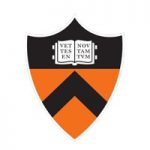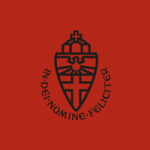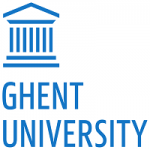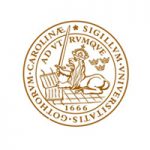项目介绍
COURSES:
Students ordinarily complete twelve courses over the first two years. In addition to seminars in the department, most students opt to complete some courses in other departments. During the third year and while teaching, students must complete an additional seminar on second language acquisition taught by the department’s language coordinator. Courses are conducted as seminars typically comprising five to fifteen participants. Depending on the topic of the course, seminars are offered in either English or German. Participants in German department graduate seminars frequently include students from neighboring departments and occasionally from other institutions.
Additional opportunities and department life:
An important feature of the department’s intellectual life is an annual graduate symposium that gives our graduate students an opportunity to present their work in a rigorous academic setting within the space of the department community. In addition, graduate students in the German department have the chance to organize topical colloquia as well as larger scale conferences that feature distinguished scholars as keynote speakers and provide an occasion for the presentation of papers – – by our own students and students from other institutions. The annual departmental lecture series also offers students an opportunity to discuss research by a wide range of scholars in informal settings following the lectures.
The department enhances seminar offerings by inviting distinguished guest professors to teach in the department for a semester or more. In addition to our two current permanent visiting faculty members Juliane Rebentisch (Hochschule für Gestaltung, Offenbach/Main) and Joseph Vogl (HU Berlin), and past permanent visiting faculty members Inka Mülder-Bach (Munich) and Sigrid Weigel (Berlin), visiting professors have included Aleida Assmann (Konstanz), Wilfried Barner (Tübingen), Gabriele Brandstetter (Berlin), Dorrit Cohn (Harvard), Rebecca Comay (Toronto), Hent De Vries (Johns Hopkins), Peter Fenves (Northwestern), Jochen Hörisch (Mannheim), Andreas Kilcher (Zurich), Alice Kuzniar (University of North Carolina), Eberhard Laemmert (Berlin), Niklaus Largier (Berkeley), Winfried Menninghaus (Berlin), Jane Newman (Irvine), Ann Marie Rasmussen (Waterloo), Michael Steinberg (Cornell), Rudolph Stichweh (Bonn), Juliane Vogel (Konstanz), Liliane Weissberg (University of Pennsylvania), and David Wellbery (Chicago). With the support of the Max Kade Foundation, the department also brings German artists and intellectuals to reside and teach at Princeton. Max Kade Foundation visitors have included Heiner Mueller, Peter Schneider, Monika Maron, Martin Walser, Hans-Joachim Ruckhaeberle, and Durs Grünbein.LANGUAGE(S):
By the end of their second year, students are expected to demonstrate proficiency in one additional foreign language other than English or German. In order to fulfill this requirement, students must pass one of the language examinations given by the appropriate department at Princeton. Students choosing to concentrate on literature before 1700 are advised to take Latin as their second foreign language.GENERAL EXAM:
The first part of the general examination, which is normally taken in October of the third year and is called the “erudition exam,” is designed to ensure that students have a strong foundation in the canon of German literature, philosophy, social theory, and film. When new students enroll in the program, they are given a list of works upon which this first exam will be based and are expected to devote time during the first two years working through this list.
The second part of the general examination, which is normally taken in January of the third year and is called the “special exam,” is devoted to a series of specific topics developed by the student in consultation with the examination committee, and is conceived as preparation for work on the dissertation.
Students who do not pass a part of the general examination on a first attempt may on the recommendation of the department stand for reexamination of that part within a year. Students who do not pass the general examination on a second and final attempt have their Ph.D. candidacy and enrollment terminated as of the first of the month following that in which the examination was retaken.
Students should be aware of the following Graduate School policy: No student should be readmitted to a fourth year (seventh term) of graduate study without having successfully completed the general examination. Depending on when a first failure takes place, this may mean that students will have less than a year to pass the exam. For the full Graduate School policy on General examinations, see https://gradschool.princeton.edu/academics/degree-requirements/phd-advising-and-requirements/general-examinationQUALIFYING FOR THE M.A.:
The Master of Arts (M.A.) degree is normally an incidental degree on the way to full Ph.D. candidacy and is earned after a student successfully completes both parts of the general examination. A terminal M.A. may also be awarded to students who, for various reasons, leave the Ph.D. program, provided that the following requirements are met:
- Successful completion of all pre-generals requirements.
- No INCs (incompletes) on the transcript.
- EITHER 1) Successful completion of the first part of the general examination (the “erudition” exam), with a passing grade deemed sufficient for a terminal M.A., but not for proceeding to Ph.D. candidacy; OR 2) Successful completion of an M.A. thesis (approximate length of 30-40 pages). The thesis should be a revision and expansion of a research paper previously submitted in a seminar in the German Department. The thesis should be completed under the supervision of the faculty member for whom the initial seminar paper was written. The thesis must be deemed acceptable in partial fulfillment of the requirements for the terminal M.A. degree by the supervising faculty and a second reader from the German Department faculty. Students who opt to complete an M.A. thesis must submit the thesis within four months of the date of termination of their enrollment.
TEACHING:
Students are required to teach one year of German Language (usually GER 101-102). Teaching typically begins in the third year and is preceded by a required, one-week pedagogy workshop led by the department’s Language Coordinator, in addition to the Orientation for Assistants in Instruction offered by the McGraw Center for Teaching and Learning.
Concurrent with the first semester of teaching, students must enroll in GER 506 (Second Language Acquisition and Pedagogy), taught by the department’s Language Coordinator.
In order to receive sixth-year funding from the German Department, students are required to teach in the second-year German Language sequence (GER 105-107). Students who entered the Ph.D. program prior to 2020 must teach GER 105 or 107 during the sixth year itself, in order to be eligible for funding from the German Department for that year. Students who entered the Ph.D. program in the Fall of 2020 or later must teach GER 105 and 107 at some point prior to or during the sixth year itself, in order to be eligible for funding from the German Department for that year.DISSERTATION AND FPO:
Upon successful completion of both parts of the general examination, the student will assemble a dissertation committee that includes the dissertation adviser or co-advisers and one or two other faculty members with expertise in the field. With approval from the German Department and, as needed, the Graduate School, dissertation committee members may be drawn from outside the department or, on occasion, beyond Princeton, as long as the primary dissertation adviser or one of two co-advisers is a member of the German Department faculty.
Dissertation Prospectus Colloquium:
Working closely with the dissertation committee following the successful completion of both parts of the general exam, the student will craft a dissertation prospectus. The dissertation prospectus is intended to help the student set out on the best path toward successful completion of the dissertation in a timely fashion. Generally 15-25 pages in length, the dissertation prospectus presents the major question(s) the dissertation will explore, along with a preliminary bibliography. The prospectus may include an articulation of proposed chapters or even a sample part of a chapter. Precise expectations for the prospectus, including its length, should be discussed in detail with the dissertation committee upon completion of the Special Examination. Optimally completed in April or May of the third year, the Dissertation Prospectus Colloquium is a departmental event that comprises a concise presentation by the student of the dissertation topic, followed by a discussion of the proposed research with the faculty and graduate community. In certain circumstances, the Dissertation Prospectus Colloquium can be scheduled for the fall of a student’s fourth year.
Final Public Oral (FPO) Examination
The Ph.D. is awarded after the candidate’s doctoral dissertation has been accepted and the final public oral (FPO) examination sustained. During the FPO the candidate presents a brief summary of the dissertation and then defends the work before faculty (including the readers and examiners appointed by the department, according to Graduate School rules), peers, and other members of the university community.
联系方式
电话: 609-258-3000相关项目推荐
KD博士实时收录全球顶尖院校的博士项目,总有一个项目等着你!






